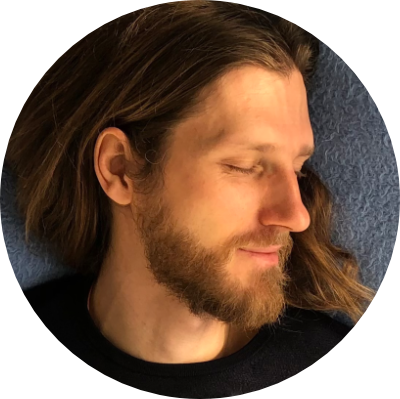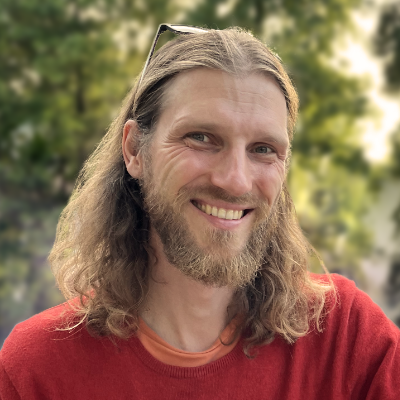About Sleep First Aid
Helping the World Sleep Better – An Altruistic Venture

Welcome to Sleep First Aid, my name is Florian Divi. I’m a Mindfulness of Dream and Sleep Facilitator with an academic background in fine arts living in Austria. I trained with sleep and dream expert Charlie Morley in London, who I have been assisting in workshops on these subjects for several years.
“Have you ever had a nightmare, a sleepless or strenuous night, after which you woke up feeling overtired, emotionally upset and exhausted?
Then you are not alone.”
Poor Sleep
Estimates and statistics suggest that 20-40% of the adult population suffer from sleep problems. Unfortunately, sleep problems are a growing global phenomenon, reflecting the increasing social pressures and stresses of modern lifestyles as well as geopolitical conflicts – whether in a rapidly accelerating and changing work environment, in the dramatic situation of a refugee, due to geopolitical tensions and conflicts, concerns about global warming, the mass extinction of species on our planet, and more.
In turbulent times, it’s particularly difficult to sleep peacefully. However, restful sleep is a prerequisite for balanced and therefore peaceful people. This commonality, that we all need restful sleep, is independent of culture, language, social status, level of education or gender – and yet it affects some people or groups more than others at certain times.
The subject of sleep is very close to my heart – as a child and teenager I suffered from severe nightmares for years, regularly woke my worried parents by screaming in my sleep (Pavor nocturnus) and was notorious in my family for sleep-walking and sleep-talking. The following project was born out of years of study and research: Sleep First Aid, which in a broader sense can also be seen as a peace project, as the consequences of sleep problems extend far beyond the personal level, as we will come to see.
The knowledge needed to get a good night’s sleep is scarce here and elsewhere. With the Sleep First Aid project, I want to help to change that.
What is Sleep First Aid?
With the Sleep First Aid project I want to counteract the general ignorance and helplessness in the field of sleep and sleep problems. My aim is to provide simple, effective and proven tools to help people find their own way back to restful sleep, where this is possible without medical help.
The Impact of Restful Sleep
When people find their way back to sleep, not only does their personal experience change for the better as they become more emotionally balanced, but family members are also relieved, and colleagues and friends benefit too, and enjoy friendlier and more productive interactions.
Furthermore, restorative sleep affects not only us as individuals and those closest to us, but also the entire human population. Restful and restorative sleep has the potential to improve the quality of life on a global scale, thereby reducing the potential for conflict on a personal, social and international level.
People who are better rested can make better use of their intellect, make clearer, more emotionally balanced and less aggressive decisions, while at the same time their ability to empathise is improved.
“We are not the only ones who benefit from a good night’s sleep – we all benefit immensely on a number of different levels from a well-rested community around us.”
Why Such a Project?
Just as most people are fortunate enough to know what to do if they cut their finger – clean the wound, remove any foreign objects, apply ointment, cover the area with a sticking plaster or, if the cut is too deep, seek medical treatment – there are also simple and effective methods that can help if you get too little sleep or suffer from sleep problems.
Unfortunately, these simple methods of getting a good night’s sleep are often completely unknown. We lack the ability to differentiate between distinct sleep problems, the vocabulary to express them, and the basic knowledge of what to do if, for example, we cannot fall asleep, have nightmares, or wake up in the middle of the night in a cold sweat…
We should also be able to recognise when Sleep First Aid has reached its limits and the help of medical professionals is essential. (To continue with the example of the cut finger above: If the wound is deeper than expected, if a tendon or nerve is injured, or if the bone is exposed, you will want to see a doctor and/or go to hospital as soon as possible – and not rely on a simple plaster…)
“Good sleep is too important:
Well-rested people are more emotionally balanced, less aggressive, act with greater awareness, and are more open to social interactions and positive interpersonal relationships.”
How Does Sleep First Aid Intend to Achieve Its Vision?
Sleep First Aid is specifically dedicated to seven of the most common sleep problems and offers proven methods for resolving them: all in one place, free of charge and accessible to all, in the form of a website supported by a Sleep First Aid poster, which is currently available in over 60 languages.
Practical exercises are suggested for individual sleep problems, explained both in writing and in the form of short, easy-to-understand videos.
The methods presented are scientifically proven and have been used successfully with people with PTSD (Post Traumatic Stress Disorder) and trauma1. Together with my teacher and sleep and dream expert, Charlie Morley, I have had the privilege of witnessing more than 600 veterans and several hundred civilians in making profound improvements in the quality of their sleep using these methods.
1 In spring 2023 the prestigious journal Traumatology published the results of a peer-reviewed study led by molecular biologist Garret Yount, PhD, in which 85% of participants experienced a “remarkable reduction in PTSD symptoms” by using Lucid Dreaming taught by Charlie Morley to transform their nightmares: https://psycnet.apa.org/doiLanding?doi=10.1037%2Ftrm0000456
Urgent Need for Further Translations
With the Sleep First Aid Project, I want to provide a professional, free resource on restful sleep that will benefit people with sleep problems around the world. Restful sleep is too important not to share.
Therefore, in order to effectively increase the reach of the content, I plan to add the following translations to the site in four stages, in order of priority:
Stage One: English, German, Spanish, Portuguese – Completed!
Stage Two: Russian, Arabic, French, Ukrainian, Hebrew
Stage Three: Chinese, Italian, Turkish
Stage Four: Hindi, Bahasa, Japanese
Your Support Makes All the Difference
Due to current geopolitical events, I would like to arrange for the translation of the website into Arabic and Hebrew in the next phase of the project. This is in order to be able both to offer help online directly to people in the affected areas, and to provide valuable self-help tools to refugees wherever they may find shelter.
And to do that I need your active and financial support.
Your support will help provide a professional, free resource for more restful sleep that will benefit people with sleep problems around the world. As a result, your support will contribute to a world that is more restful and more peaceful for all of us.
Because, as we said at the beginning: when people find their way back to sleep, not only does their personal experience change for the better as they become more emotionally balanced, but family members are also relieved, work colleagues and friends benefit and enjoy more productive and friendly interaction with each other, and as a final consequence whole societies respond more calmly and constructively to challenges of all kinds.
A good night’s sleep starts at home, in our bedrooms, and is made possible by supporters like you. Thank you so much. ♥
Further Reading
For those wishing to explore the subject of sleep in greater depth, I highly recommend the following specialist literature:
- Wake Up To Sleep: 5 Powerful Practices to Transform Stress and Trauma for Peaceful Sleep and Mindful Dreams, by Charlie Morley. Inspired by the author’s work with military veterans and serving personnel, this book offers a range of additional methods, each of which are supported by numerous scientific references, an ideal complement to the SFA project. Published by Hay House.
- The Science of Sleep: Stop Chasing a Good Night’s Sleep and Let It Find You, by Heather Darwall-Smith. This richly illustrated guide offers a wealth of insights on the subject of sleep, encompassing various stages of life, from infancy to adolescence to menopause and old age. It also delves into the nuances of different lifestyles and sleeping environments. Published by Dorling Kindersley.
Acknowledgement
My sincere gratitude goes to my teacher and friend Charlie Morley, whose workshops on sleep provided the inspiration and basis for the SFA project. I genuinely hope that his work – bringing knowledge about sleep and dreams to the world – will be supported in the best possible way by the Sleep First Aid project. Charlie’s workshops take place in numerous countries around the world and can be found under the following link.
My heartfelt gratitude also goes to the poet Chrischa Venus Oswald, who supported me with her excellent linguistic skills, patience, motivation, constructive feedback and positive attitude – without you, dear Chrischa, Sleep First Aid would not exist in this form.
My sincere thanks go to all the supporters of the Betterplace.me campaign, whose trust has given me the necessary impetus for the further realisation of the project. In particular, I’d also like to thank my dear Mum, who never stopped believing in my crazy ideas and was willing to support the project without hesitation. My heartfelt thanks also go to the Oswald family, whose energetic support has been instrumental in moving the project forward.
A special thanks is due to Michaela Wollschläger for her technical expertise and aesthetic sensibility in designing and programming the website, thus making it accessible to countless people.
A Muito Obrigado to Gabriela Gonçalves, who has ensured that the Portuguese on this website has been given the necessary polish to make it shine for Brazilians and Portuguese alike. A big thank you to Jane Weston and Jon Armour for their proofreading in English – You two are brilliant! Muchísimas Gracias to Marilú García for the translation of the website into Spanish – the Iberian Peninsula, South and Latin America will be most grateful to you. And my heartfelt thanks also to Jon Amour for lending his gentle voice to the Circle of Protectors visualisation exercise. Thanks brother!
Grazie di cuore to Laura Mura and Alessandra, who made this body of work accessible to all the Italian speakers out there, bellissimo! Un grand merci to Virginie Linder, whose French translation will help the Sleep-First-Aid project to reach some 50 countries and territories around the globe. Большое вам спасибо от всего сердца to Margarita Fray, the founder of Dreamsome, for helping translate and Aleksei Matveev for proofreading the SFA project into the most widely spoken Slavic language, Russian, which is also the most geographically widespread language of Eurasia, even reaching outer space as it’s official language on the International Space Station, ISS. Yes, astronauts are napping too! Від щирого серця дякую вам to Mariana Petryk, who beautifully translated the Ukrainian version of this website. I’m confident that your Ukrainian fellows will greatly benefit from your work and efforts.
Last but not least, my special thanks go to the dozens of translators of the Sleep First Aid poster from around the world who have given their unconditional support to the project, taking the trouble to find terms such as flashback or lucid dreaming in their native languages – you are my sleep first aid heroes. Much gratitude.
In no particular order: Cara & Ben, Seainin & Brídín, Riaan, Veronika, Peter & Britta, Chrischa, Olivier, Veronika, Danna, Faiza, Maggy, Gilles, Alejandro, Gudrun & Edu, Regina, Laura & Agostino, Mauri, Monica, Oli, Yuki, Özge, Benazir, Lucie, Léla, Aida, Elva, Tim, Helene, Christine, Henry, Veronika, Artur, Sirle, Janis, Vytenis, Dominika, Eva, Míša, Jana, Vlasta, Otovio, Nastia, Volha, Norina, Sananda, Gerhard & San, Takemi, Nisa, Joanne, Mai & Emi, Nedaa & Jon, Wahid, Sunil, Pamir, Kashiraj, Sanjima, Divine, Aishwarya, Beate and Evelyn – as well as all the dear people who were involved in one way or another that I forgot to mention here. 🙏💙
Contact

Mag. art. Florian Divi
Founder of the Sleep First Aid project
Sign-up form for workshops and more
and/or
